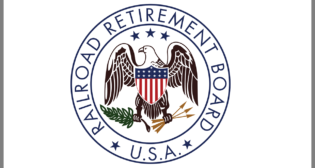
SEPTA Board OKs $2.6B Budget for FY2025
Written by Marybeth Luczak, Executive Editor
(SEPTA Photograph)
The Southeastern Pennsylvania Transportation Authority (SEPTA) Board has signed off on a $2.6 billion Fiscal Year (FY) 2025 budget proposal comprising a $1.74 billion Operating Budget and a $924 million Capital Budget, “advancing plans to fund everyday operations and major improvement projects,” the transit authority reported June 27.
The authority said it is projecting a $240 million deficit this year due to the exhaustion of federal COVID relief funding, and SEPTA’s budget assumes passage of Pennsylvania Gov. Josh Shapiro’s statewide transit funding proposal. “If fully enacted, the plan—Pennsylvania’s first transit operating increase in more than a decade—would invest an additional $283 million annually to support vital transit service across the commonwealth, including $161 million for SEPTA,” according to the authority.
Additional state investment, coupled with an increase of $24 million in the local match tied to it, would help SEPTA “avoid devastating service cuts and fare increases that would severely impact mobility across southeastern Pennsylvania,” the authority said.
The $1.74 billion Operating Budget doubles funding for “safe, clean and secure initiatives” since FY2022: $72 million that includes funding for 40 more police officers, 30 more safety professionals and 100 more cleaners. The budget also continues the expansion of SEPTA Key Advantage, which now has more than 50 partners and 91,000 participants, as well as SEPTA’s Efficiency and Accountability Program, which the authority said “has already realized $50.2 million in annual recurring benefits.” Additionally, SEPTA reported that the budget funds increased Regional Rail service beginning this fall, restoring service to 80% of pre-COVID levels, with additional mid-day and weekend service.
The budget “reflects the reinstatement of parking fees, following four years of free parking offered to help attract customers back to the system,” according to SEPTA. During the Board’s June 27 meeting, it awarded a $12.3 million contract to Flowbird America Inc. to develop a parking system that will “streamline fee collection and improve customer convenience.” Beginning in FY2025, daily parking rates at 135 SEPTA-owned surface lots will increase to $2 from $1 and to $4 from $2 at the three garages. The fees are slated to help offset lot maintenance, and the remaining funds are expected to help fill gaps in the Operating Budget, according to the transit authority. Prior to the COVID-19 pandemic, parking brought SEPTA $4.7 million in annual revenue.
FY2025 Capital Budget, 12-Year Program
SEPTA reported that the $924 million Capital Budget is part of a $14 billion 12-year Capital Program. The proposal includes new full-length fare gates to reduce fare evasion and new cleaning equipment to support the expanded cleaning staff.
“By the end of the 12-year program, all Broad Street Line, Market-Frankford Line, and Trolley trips will be through an accessible station, compared with 61% today,” the transit authority said. “SEPTA continues to operate one of the oldest rail fleets in the country, and for the first time, this budget funds at least a partial replacement of each aging vehicle fleet. The Broad Street Line, Market-Frankford Line, and Trolley fleet replacements are all fully funded, while the Regional Railcar fleet replacement is partially funded.”
According to SEPTA, this Capital Program advances several SEPTA Forward initiatives, including:
- Trolley Modernization: $1.98 billion for vehicle acquisition and infrastructure upgrades and a new signal system.
- Market-Frankford Line Railcar Replacement: $1.2 billion for vehicle acquisition, infrastructure upgrades and a new signal system. This procurement is supported by a recent $317 million grant from the Federal Transit Administration “that is three times larger than any competitive grant that SEPTA has ever received.”
- Regional Rail Fleet Replacements: $859 million to initiate the replacement of 50-year-old railcars.
- Wayfinding Improvements: $40 million for signage, real-time information and website/mobile app upgrades.
- “Safety, Cleanliness, Resiliency and Modernization”: $5.4 billion to protect, update and maintain aging legacy assets.
- Accessibility: $1.4 billion to provide full ADA accessibility at 45 Rail Transit and Regional Rail stations over the next 12 years. By the end of this 12-year program, SEPTA said 100% of subway/elevated and trolley stations will be ADA accessible.
“With funding in place, SEPTA is poised to make historic investments in the infrastructure and vehicles that make our service possible,” SEPTA CEO and General Manager Leslie S. Richards said. “These investments will propel SEPTA forward and help continue to grow ridership—transforming SEPTA’s legacy system into a lifestyle network that is safe, clean, modern, and accessible for all riders.”



